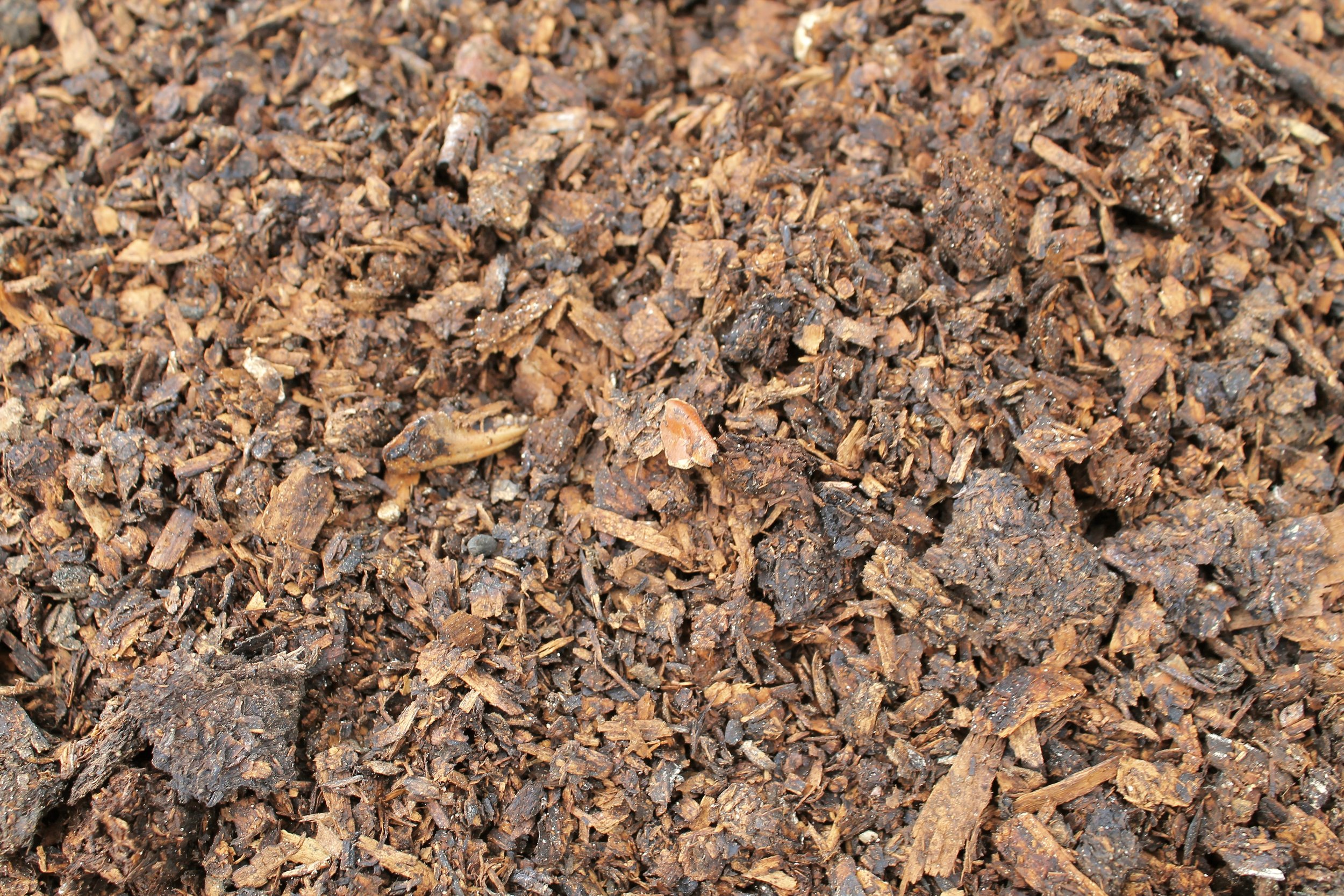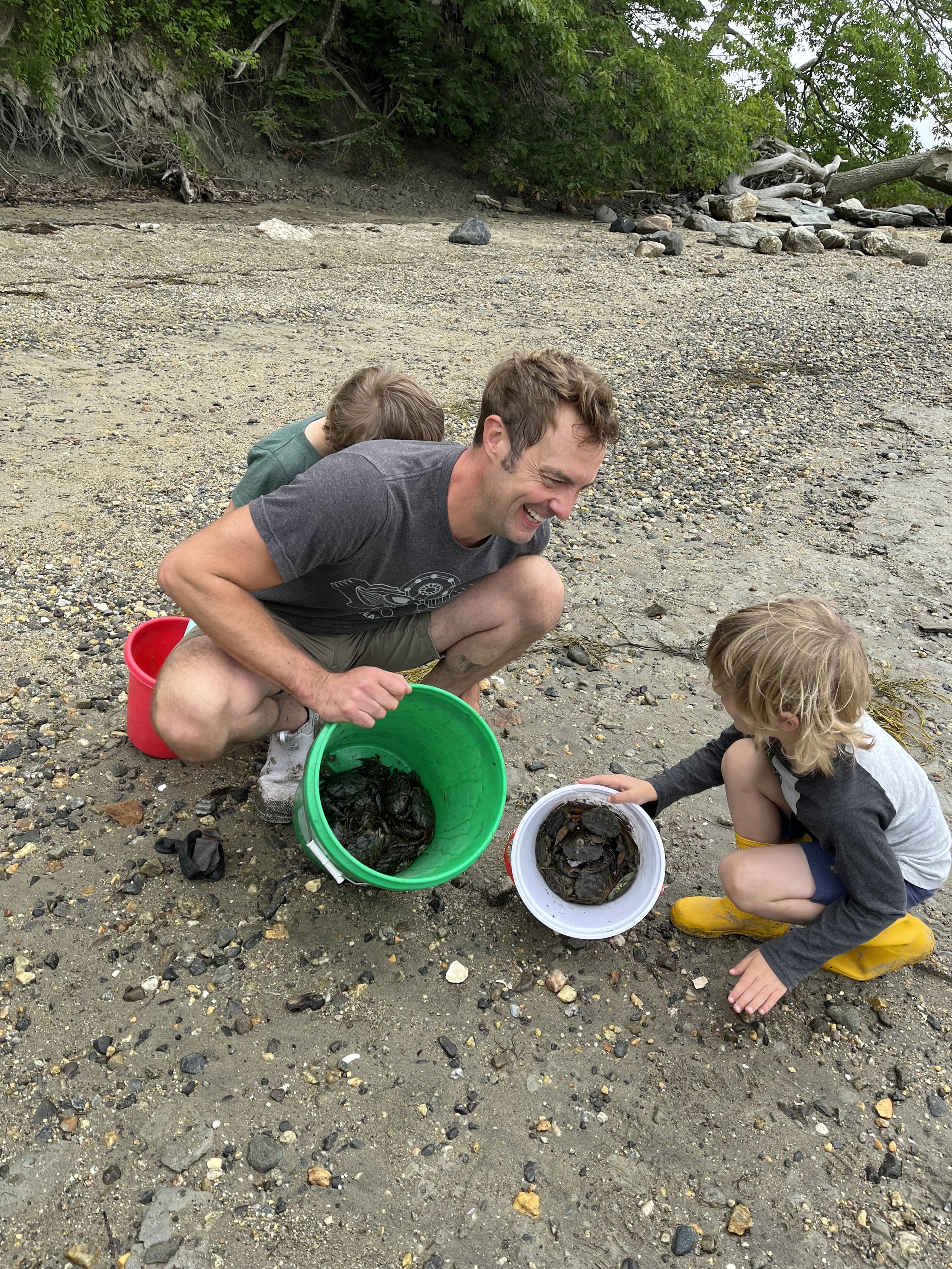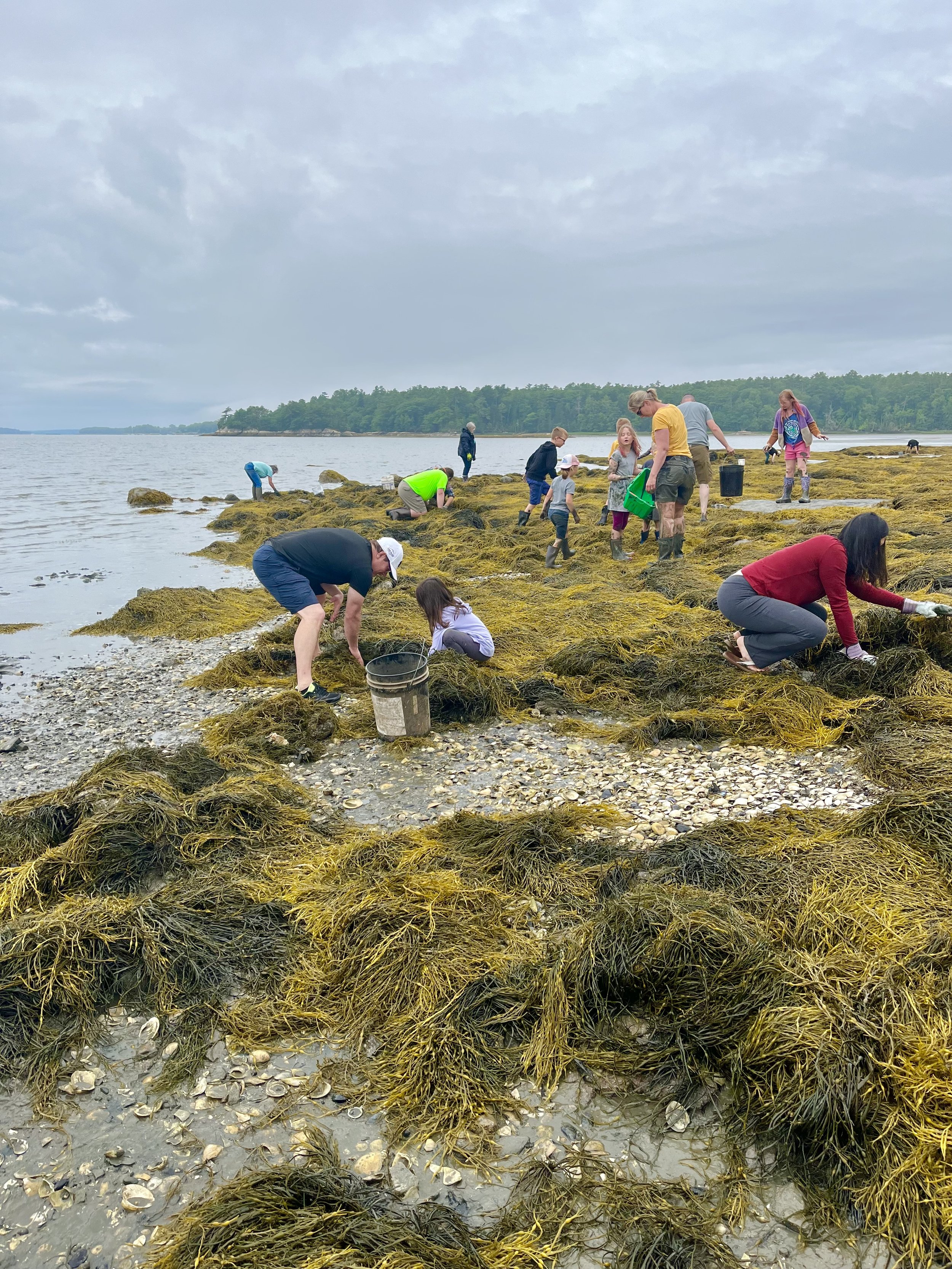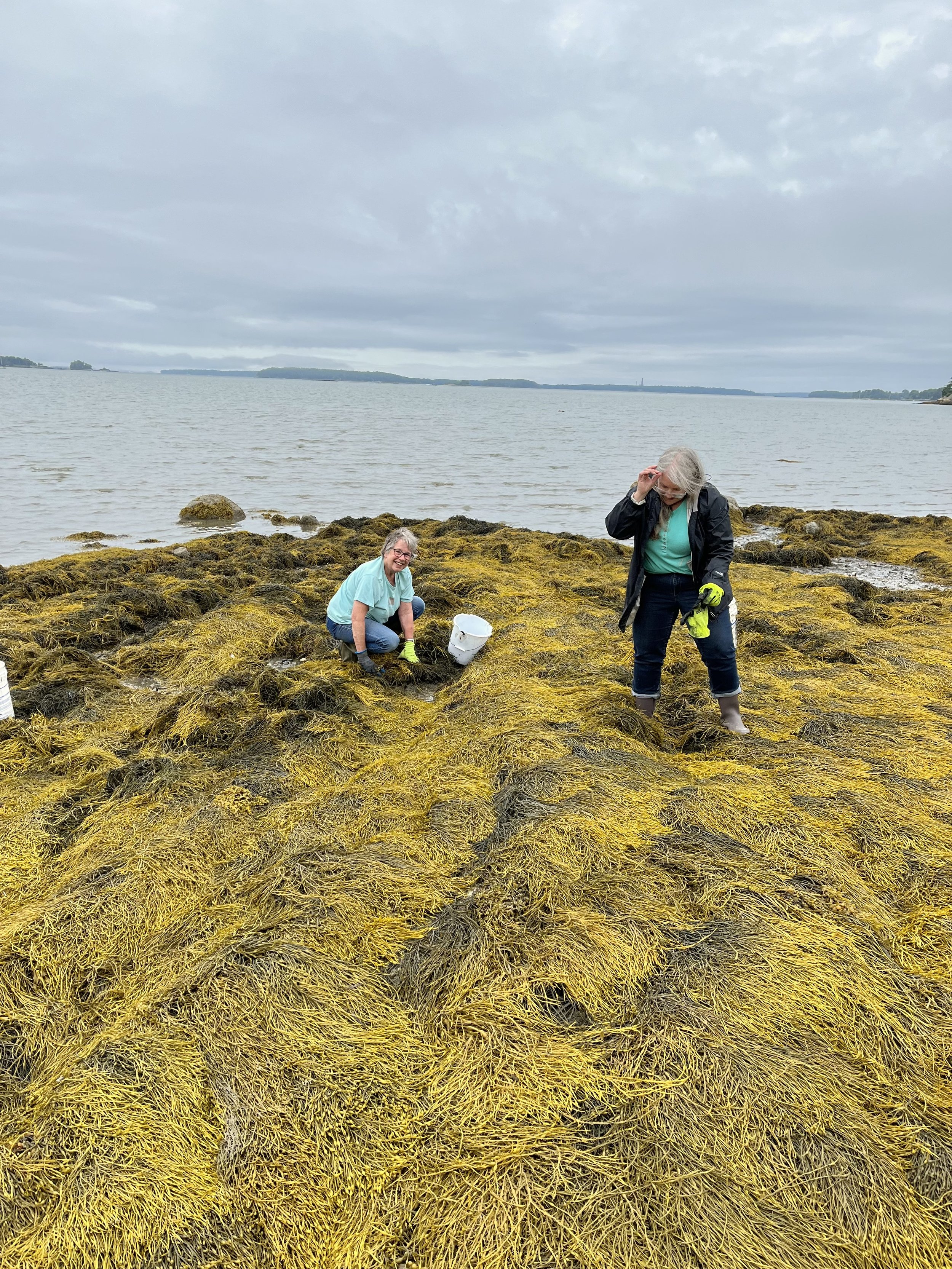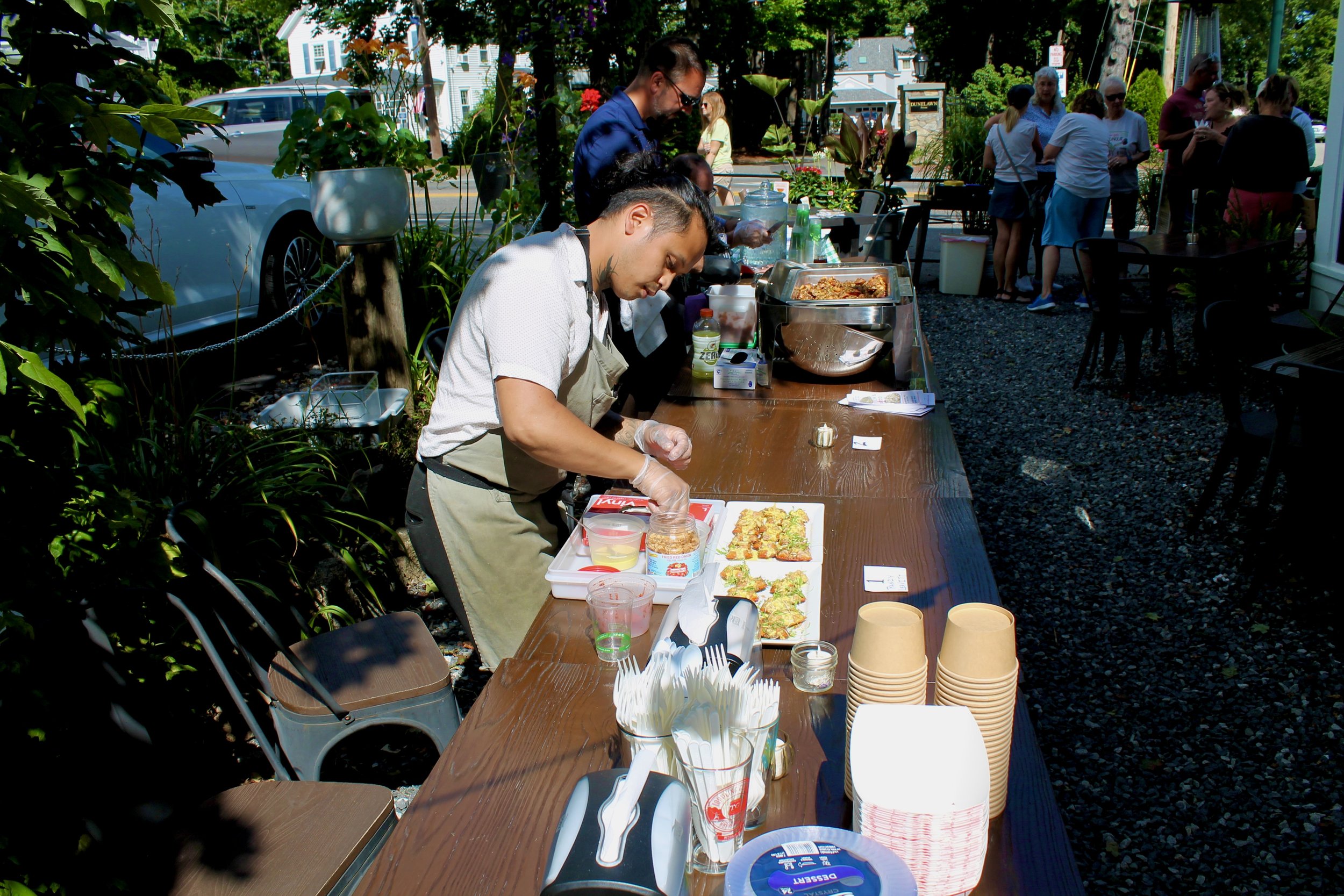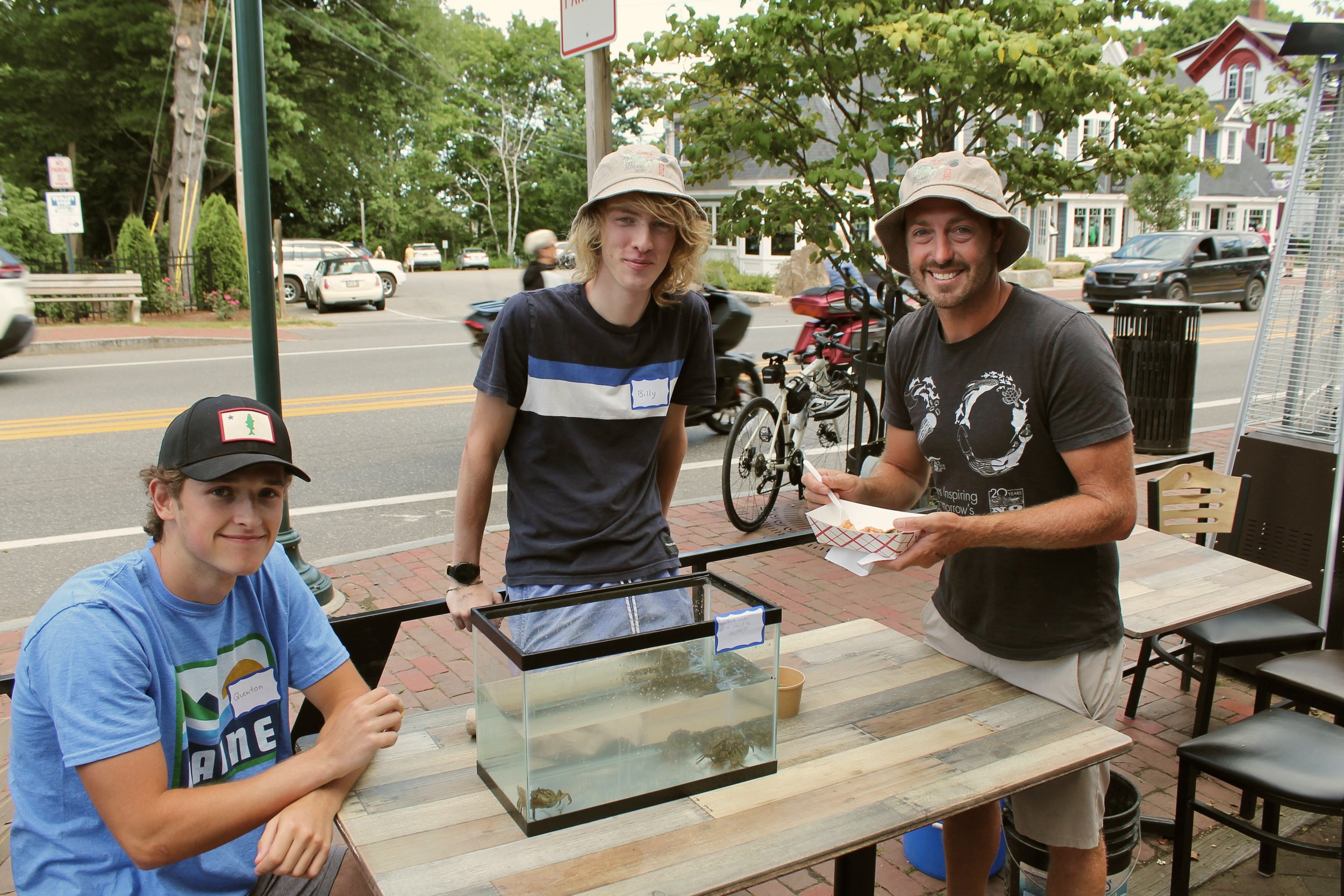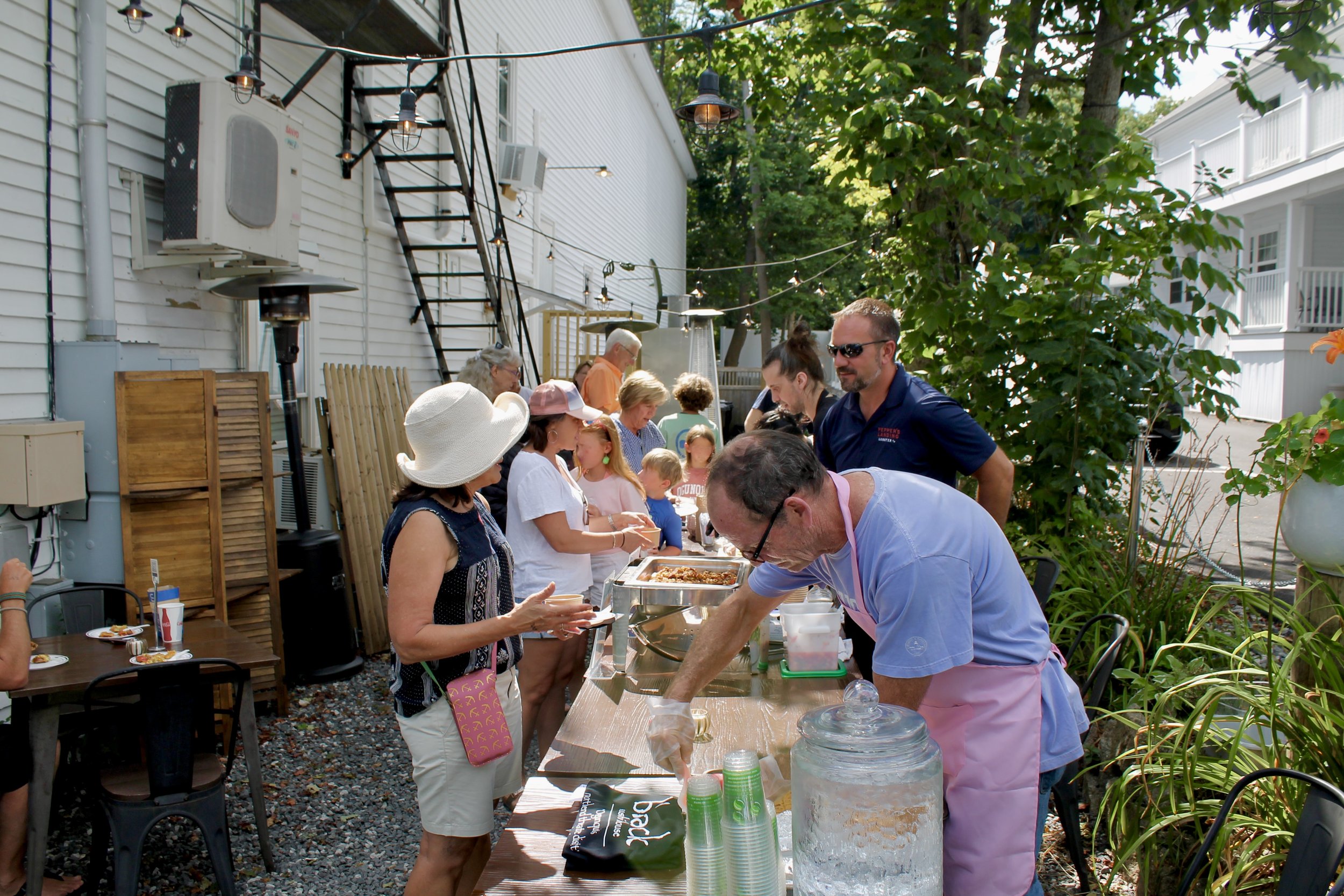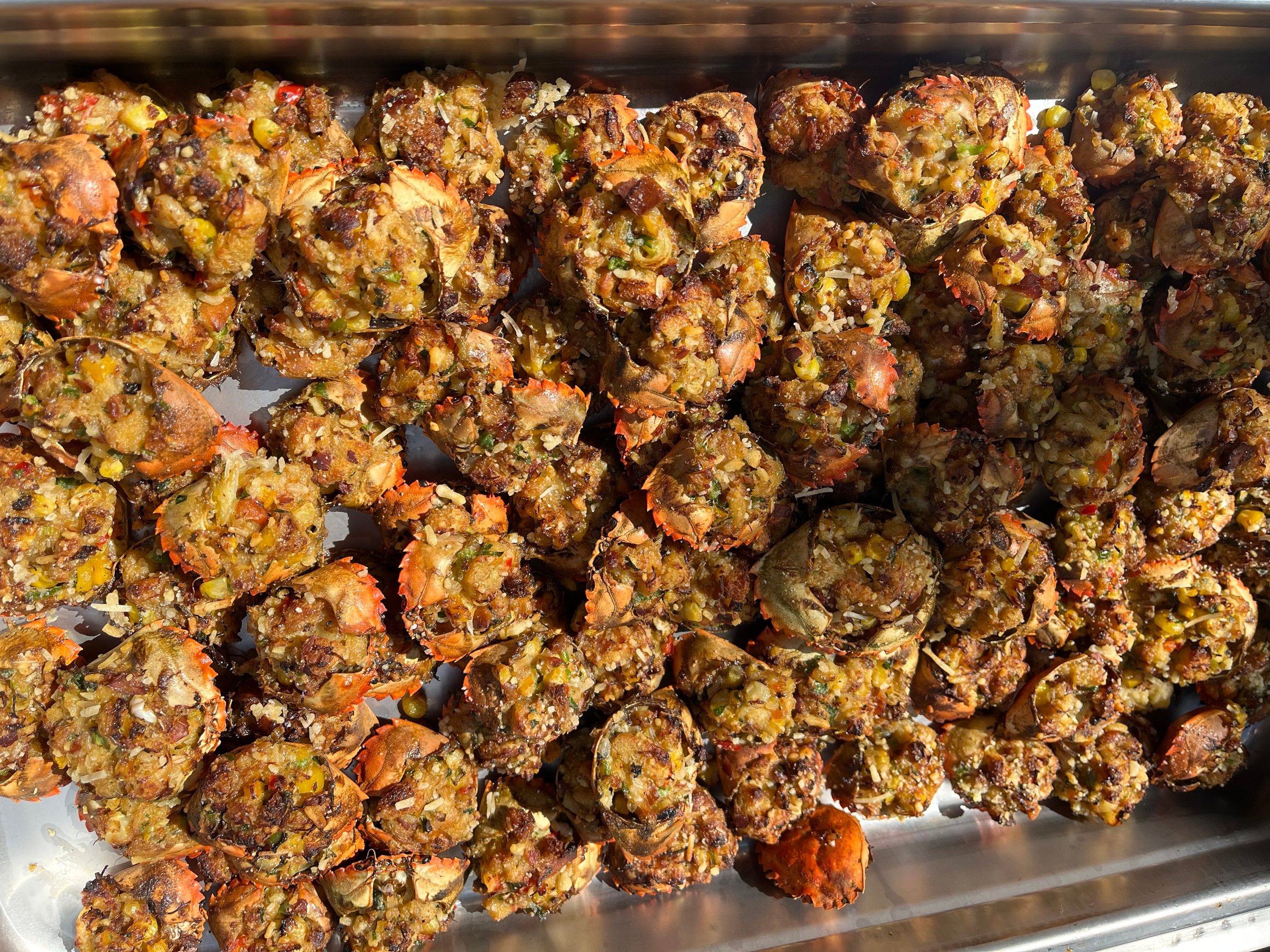Green Crabs in Casco Bay
Green crabs were first spotted in Casco Bay in the early 1900s after moving northward from Massachusetts waters, where they were introduced nearly a century before. In recent years, green crabs have become one of the most common crab species in Vacationland, wreaking havoc on some of the state’s most valuable fisheries and vulnerable ecosystems. Cold winters that historically kept green crab populations in check are no longer common and as climate change continues to warm the Gulf of Maine, green crab populations could increase. The invasive certainly doesn’t have a great reputation in Maine, considering they’ve singlehandedly destroyed the soft-shell clam fishery (a single green crab can eat up to 40 clams in a day), compete with local crabs and lobster, and destroy important eelgrass habitats. Many have launched diversified efforts to monitor the invasive, control their populations, prevent predation of clams, and spread awareness of their invasive impact.
In the summer of 2023, GreenCrab.org worked with several organizations and restaurants across the bay to spread awareness of invasive green crabs, remove them from Casco’s waters, and put the problem on plates!
A green crab caught at Wolfe’s Neck Center in Freeport, ME
Wolfe’s Neck Center - Freeport, ME
Wolfe’s Neck Center has been utilizing green crabs as compost for years, processing green crabs removed by Quahog Bay Conservancy. The process begins at Quahog Bay Conservancy, where green crabs removed through their targeted mitigation efforts are sent through an industrial pulverizer before being sent to Wolfe’s Neck Center.
On June 24th in partnership with GreenCrab.org, Wolfe’s Neck hosted its first-ever green crab derby with the goal of collecting as many green crabs as possible from surrounding waters and educating community members on how to utilize the crabs in the kitchen and the garden. The attendee who collected the most green crabs won a night of camping at Wolfe’s Neck Oceanfront Campground and a copy of the Green Crab Cookbook.
Later in the evening, participants also had the chance to swing over to Bar Futo to taste their Green Crab Chawanmushi with Crab Oil.
Healthy Rivers Ogunquit - Ogunquit, ME
In June and September of 2022, Healthy Rivers Ogunquit (HeRO) and the Wells High School Environmental Club launched a pilot project for youth citizen scientists, trapping over 4,000 green crabs. This past summer, HeRO partnered with GreenCrab.org and the Leavitt Theatre to host their first-ever green crab derby and cookoff. Featured recipes included a green crab curry by the Leavitt Theatre kitchen, a crab meat cornbread by Black Sushi House, and stuffed crab by Pepper’s Seafood.
Harvester Mike Masi (second photo) who provided green crabs for the cookoff even hosted a touch tank where participants had a chance to guess which crab was going through molting.
Shell + Claw - York, ME
Co-founder of Shell + Claw, Mike Masi hails from York, Maine and is one of the first people in the country to successfully molt and sell soft-shell green crabs to restaurants. As a former science teacher, Mike spent years teaching students about the impact of invasive green crabs. He’s now working to molt green crabs to sell to restaurants, an endeavor that’s required a lot of patience and tinkering. His soft-shell green crabs have been found on menus such as Row 34 and The Black Trumpet and he hopes to scale the operation in 2024.
Mike Masi and interns Billy Bachelder and Quenton Convery display soft-shell green crabs in a tank at The Leavitt Theatre
This summer, Mike also supplied hard-shell green crabs to Maine restaurants such as Zao Ze Cafe and Market in Brunswick and Bar Futo in Portland. To learn more about Mike’s work with green crabs, check out this video by Business Insider or this blog post about his collaboration with Khmer Maine.
Green Crab Wonton Noodle Soup at Zao Ze Cafe and Market
Green Crab Chawanmushi with Crab Oil from Bar Futo


